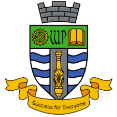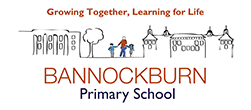English
English
Head of Department: Ms Squire HSquire@woolwichpolyboys.co.uk
Knowledge takes centre stage in our spiralling, skills-based curriculum which encourages our boys to think, feel and imagine.
A successful English student at Woolwich Poly shares a passion for reading and writing. He is able to communicate clearly, confidently and precisely both orally and in writing using sophisticated vocabulary. In addition, he is able to read and understand a range of sophisticated texts so that he is able to evaluate, analyse and engage with the wider world. Through their mastery of English, our successful boys are empowered and perfectly prepared for life after Woolwich Polytechnic School for Boys.
Key Stage 3 Curriculum
Our KS3 (years 7-9) curriculum is mapped backwards from the English Literature and English Language GCSE course so that we perfectly equip our boys with the correct skills which enable them to be successful in year 11. We are extremely proud of our rich, inclusive and engaging curriculum which has been constructed around the needs of our boys. This means that we begin teaching important skills such as language and structure analysis and writing in year 7 so that they are ready to tackle the demands of their GCSEs in year 10. Our KS3 curriculum involves studying a diverse range of novels, plays and poems from a range of writers with different voices from a variety of cultural backgrounds as well as non-fiction and writing. Some of the exciting texts we study include ‘Private Peaceful’ ‘Boys Don’t Cry’, ‘The Hate U Give’, ‘Animal Farm’ and plays such as ‘ A View From The Bridge’ and ‘A Midsummer Night’s Dream’ as well as spoken word poetry and poetry from a range of cultures, writing to argue and writing to describe. In addition, there are plenty of opportunities for the boys to express themselves through debate and discussion. Our demanding KS3 curriculum is constantly being revised and revisited to ensure that we are meeting the needs of both our high prior attainers and those boys who need more support.
One of our main goals at KS3 is to foster a love of reading and we have implemented a number of strategies designed to engage our boys in reading. With our reading project novel, all the boys in a year group participate in the reading out loud of the same novel; this allows all the boys to discuss and share in a common reading experience. In year 7 the shared reader is the novel ‘Gone’ and in year 8 we use ‘Divergent’ and in year 9 ‘Half-Bad’. In addition, we ask all our boys to choose their own Accelerated Reader novel and encourage them to read weekly and write about it in their reading journal.
support materials and useful links
Key Stage 4 Curriculum
AQA GCSE
At KS4 pupils follow a rigorous programme of study that covers a variety of different texts and genres. Pupils will read plays, novels, poetry and an array of non-fiction writing. We aim to develop our pupils’ understanding of written texts and how to analyse their effectiveness. Pupils also work on their own writing skills to write effectively for both audience and purpose. We assess regularly so both parents and pupils are aware of progress in both Language and Literature.
Year 10
From 2018 we began teaching both the AQA Literature and the AQA Language GCSEs together over a three-year course.
In year 10 students will continue their preparation for the Literature and Language GCSEs where the focus turns to the play ‘An Inspector Calls’ and poetry. We also continue teaching the English Language course which assesses two main skills: reading and writing. In additional, students will be assessed on a speaking and listening component.
Year 11
In Y11 the English Department works on exam skills to ensure that students are fully prepared for their GCSE exams.
We follow the diagnosis, therapy and testing model to enhance the outcome of the students. Additionally, we facilitate students to work and perfect their weakest areas based on their exam performance. The English Department strives for success, so we offer a range of extra curriculum support and we design meticulous intervention plans to ensure that all students are confident before their exams and they excel in English at GCSE level.
Assessment
100% written exams
- GCSE English Language Paper 1 1hr 45 minutes
- GCSE English Language Paper 2 1hr 45 minutes
- GCSE English Literature Paper 1 1hr 45 minutes
- GCSE English Literature Paper 2 2hrs 15 minutes
- Speaking and Listening component assessed internally and externally moderated.
Support Materials and Useful Links
Websites
BBC Education
English App Pixl
Department Information
Enrichment opportunities Pixl Debate/Speak out Challenge debating/Film Studies for Year 9
Various theatre trips throughout the year
Clubs or Interventions
Saturday Schools, Breakfast Club for year 11 Intervention Monday-Friday and P7 Intervention on Mondays/Tuesdays
Future careers/uni courses
Lawyer, Manager, Business, Translator, Journalist, Marketing, Public Relations, Retail, Hospitality, Tourism, Politics, Personnel
Social, Moral, Social, Cultural (SMSC) and British Values
Within English, British values are promoted and explored in a variety of ways. The study of non-fiction texts provides students and teachers with the opportunity to address topical issues and consider different social, political, religious and cultural attitudes and contexts. The department ethos is always to respect the views of individuals and provide a learning environment in which students feel able to express themselves freely yet respectfully.
The study of literature goes hand-in-hand with exploration of different people, places and social groups and as such, promotes understanding and tolerance. Being able to empathise with others and examine situations and settings outside our individual experience is an explicitly taught skill.
In addition to curriculum content, the methods employed in English lessons encourage tolerance and respect. Students are expected to listen to and respect each other during group discussions and debate, and to work co-operatively in pursuit of common goals.
reading list
Set texts
- Othello – William Shakespeare
- Streetcar Named Desire – Tennessee Williams
- Frankenstein Mary Shelley
- The Handmaid’s tale
- Poems of the Decade – Various
- Selected poems of Christina Rossetti
NEA (two of):
- Cat on a Hot Tin Roof – Tennessee Williams
- The Great Gatsby – F Scott Fitzgerald
- The Color Purple – Alice Walker
- Death of a Salesman - Arthur Miller
Dystopian Novels
- 1984 – George Orwell
- The Road – Cormac McCarthy
- Parable of the Sower – Octavia Butler
- Brave New World – Aldous Huxley
- Fahrenheit 451 – Ray Bradbury
- Day of the Triffids / The Chrysalids – John Wyndham
- Children of Men – PD James
- The Power – Naomi Alderman
- A Clockwork Orange – Anthony Burgess
- The Time Machine – HG Wells
- Do Androids Dream of Electric Sheep? – Philip Dick
- Riddley Walker – Russell Hoban
- Station Eleven – Emily St John Mandel
Victorian Classics:
- Jane Eyre by Charlotte Brontë: A classic coming-of-age story with elements of romance, gothic and social commentary.
- Great Expectations by Charles Dickens: A novel exploring themes of ambition, social class, and redemption, with a memorable cast of characters.
- Wuthering Heights by Emily Brontë: A passionate and dark love story set on the Yorkshire moors, known for its intense characters and atmosphere.
- The Picture of Dorian Gray by Oscar Wilde: A philosophical novel exploring themes of beauty, morality, and the corrupting influence of vanity.
- Vanity Fair by William Makepeace Thackeray: A satire of English society during the Napoleonic Wars, focusing on the lives and ambitions of several characters, particularly Becky Sharp.
- Middlemarch by George Eliot: A complex and richly detailed novel exploring the lives and relationships of various characters in a provincial town, with a focus on social and intellectual life.
- The Woman in White by Wilkie Collins: A suspenseful mystery novel with elements of sensation fiction, featuring intricate plot twists and memorable characters.
- North and South by Elizabeth Gaskell: Explores the social and economic tensions between the industrial north and the agricultural south of England.
- The Strange Case of Dr. Jekyll and Mr. Hyde by Robert Louis Stevenson: A novella delving into the duality of human nature and the conflict between good and evil.
- Dracula by Bram Stoker: A gothic horror novel that introduced the iconic vampire character and explores themes of good versus evil and the unknown.
- Tess of the d'Urbervilles by Thomas Hardy: A tragic novel about a young woman's struggle against social constraints and moral judgment.
- The Tenant of Wildfell Hall by Anne Brontë: A powerful novel exploring themes of domestic abuse and female independence.
- Alice's Adventures in Wonderland / Through the Looking-Glass by Lewis Carroll: Imaginative and whimsical fantasy novels that have captivated readers for generations.
- Bleak House by Charles Dickens: A complex novel exploring social issues, poverty, and injustice in Victorian England.
- Little Dorrit by Charles Dickens: A social novel critiquing institutions and societal structures, with a focus on themes of imprisonment and freedom.
- Silas Marner by George Eliot: A novel about a weaver's redemption and spiritual awakening.
- Daniel Deronda by George Eliot: Explores themes of Jewish identity and social responsibility.
- Lady Audley's Secret by Mary Elizabeth Braddon: A sensation novel known for its suspenseful plot and exploration of female transgression.
- Jude the Obscure by Thomas Hardy: A controversial novel that explores themes of social class, education, and marriage.
- The Mill on the Floss by George Eliot: A novel about a woman's struggle to find fulfillment in a patriarchal society.
- Our Mutual Friend by Charles Dickens: A social novel exploring themes of wealth, class, and inheritance, with a complex plot and memorable characters.
Modern Prose
- Chimamanda Ngozi Adichie: Purple Hibiscus / Americanah
- Adavind Adiga: The White Tiger
- Monica Ali: Brick Lane
- Jhumpa Lahiri: The Namesake
- Tara Westover: Educated (memoir)
- Anthony Doerr: All the Light We Cannot See
- Andrea Levy: Small Island
- Marcus Zusak: The Book Thief
- Rose Tremain: The Road Home
- Colm Toibin: Brooklyn
- Joanna Quin: The Whalebone Theatre
- Chinua Achebe: Things Fall Apart
- Margaret Atwood: The Blind Assassin / Alias Grace / The Testaments
- Angela Carter: The Bloody Chamber (short stories) / Nights at the Circus
- Daphne Du Maurier: Rebecca
- Sebastian Faulks: Birdsong / Charlotte Gray
- Gabriel Garcia Marquez: Love in the Time of Cholera
- Graham Greene: Brighton Rock
- Kazuo Ishiguro: Never Let Me Go
- James Joyce: Dubliners (short stories)
- Harper Lee: To Kill a Mockingbird
- Ian McEwan: Atonement
- Toni Morrison: Song of Solomon / Beloved
- Arundhati Roy: The God of Small Things
- Sylvia Plath: The Bell Jar
- Annie Proulx: The Shipping News
- Jean Rhys: Wide Sargasso Sea (prequel to Jane Eyre)
- John Steinbeck: The Grapes of Wrath
- Jeanette Winterson: Oranges are not the only Fruit
- Zadie Smith: White Teeth
- Virginia Woolf: Mrs. Dalloway
- Iain Banks: The Wasp Factory
- A.S. Byatt: Possession
- J.M. Coetzee: Disgrace
- Louis de Bernieres: Captain Corelli’s Mandolin
- E.M. Forster: Howards End ,A Room with a View ,Where Angels Fear to Tread ,Maurice ,The Longest Journey, A Passage to India
- L. P. Hartley: The Go-Between
- Ernest Hemingway: A Farewell to Arms ,For Whom the Bell Tolls
- Khaled Husseini: The Kite Runner, A Thousand Splendid Suns
- Kazuo Ishiguro:Remains of the Day ,Never Let Me Go
- D.H. Lawrence: Sons and Lovers ,The Rainbow ,Women in Love
- Hilary Mantel: Wolf Hall, Bringing Up the Bodies, The Mirror and the Light
- Haruki Murakami: IQ84; Norwegian Wood
- Toni Morrison: Song of Solomon ,Beloved
- Jean Rhys: Voyage in the Dark , Wide Sargasso Sea
- Donna Tartt: The Secret History
- Jeanette Winterson: Oranges are not the only fruit
- Virginia Woolf: To the Lighthouse , Mrs Dalloway , Orlando , Road to Wigan Pier
- Arundhati Roy: The God of Small Things
- Salman Rushdie: Midnight’s Children, Shame ,The Satanic Verses
- J. D. Salinger: Catcher in the Rye
- John Steinbeck: The Grapes of Wrath , East of Eden, Of Mice and Men
- Patrick Suskind: Perfume
Non-Fiction
- Maya Angelou: I Know Why the Caged Bird Sings
- Bill Bryson: The Lost Continent / Notes from a Small Island
- Alan Bennett: Writing Home
- Truman Capote: In Cold Blood
- Jenny Diski: Skating to Antarctica
- Anna Funder: Stasiland
- Alexander Masters: Stuart: A Life Backwards
- Helen Macdonald: H is for Hawk
- Nelson Mandela: Long Walk to Freedom
- Solomon Northrop: Twelve Years a Slave
- Jeannette Winterson: Why Be Happy When You Could be Normal?
- Xinran: What the Chinese Don’t Eat
Poets:
- Early: Beowulf, Caedmon’s Hymn, Dream of the Rood
- Medieval Lyrics: Sir Orfeo Sir Gawaine and the Green Knight, Piers Plowman ;Chaucer – The Canterbury Tales (Wife of Bath, Merchant, Pardoner, Reeve, Miller, Knight, Nun’s Priest)
- Elizabethan: Wyatt; Spenser; Sidney; Shakespeare; Jonson
- Metaphysical: Donne; Herbert; Vaughan; Marvell
- Restoration: Milton
- Augustan: Butler; Dryden; Pope; Swift; Rochester
- C18: Gray; Cowper; Crabbe; Burns; Goldsmith
- Romantic: Blake; Clare; Wordsworth; Coleridge; Byron; Keats; Shelley
- Victorian: Tennyson; Browning; Barrett-Browning; Arnold; Rossetti; Southey; Arnold; Emily Dickinson
- Fin-de-siecle: Wilde; Swinburne; Symons;
- Early C20: Blunden; Lawrence; Graves; de la Mare
- War Poets: Brooke; Owen; Rosenberg; Sassoon
- Modernist and Modern Armitage; Auden; Betjeman; Causley; Cope; cummings; Davies; Duffy; Eliot; Fanthorpe; Fenton; Frost; Gunn; Hardy; Harrison; Heaney; Henri; Hughes; Jennings; Larkin; Lochhead; Macneice; McGough; Mitchell; Motion; Patten; Plath; Raine – Kathleen and Craig; Sitwell; Smith Spender; Thomas – RS and Dylan; Walcott; Yeats; Zephaniah; Button Poetry on-line; Evan Boland; Kae Tempest:





